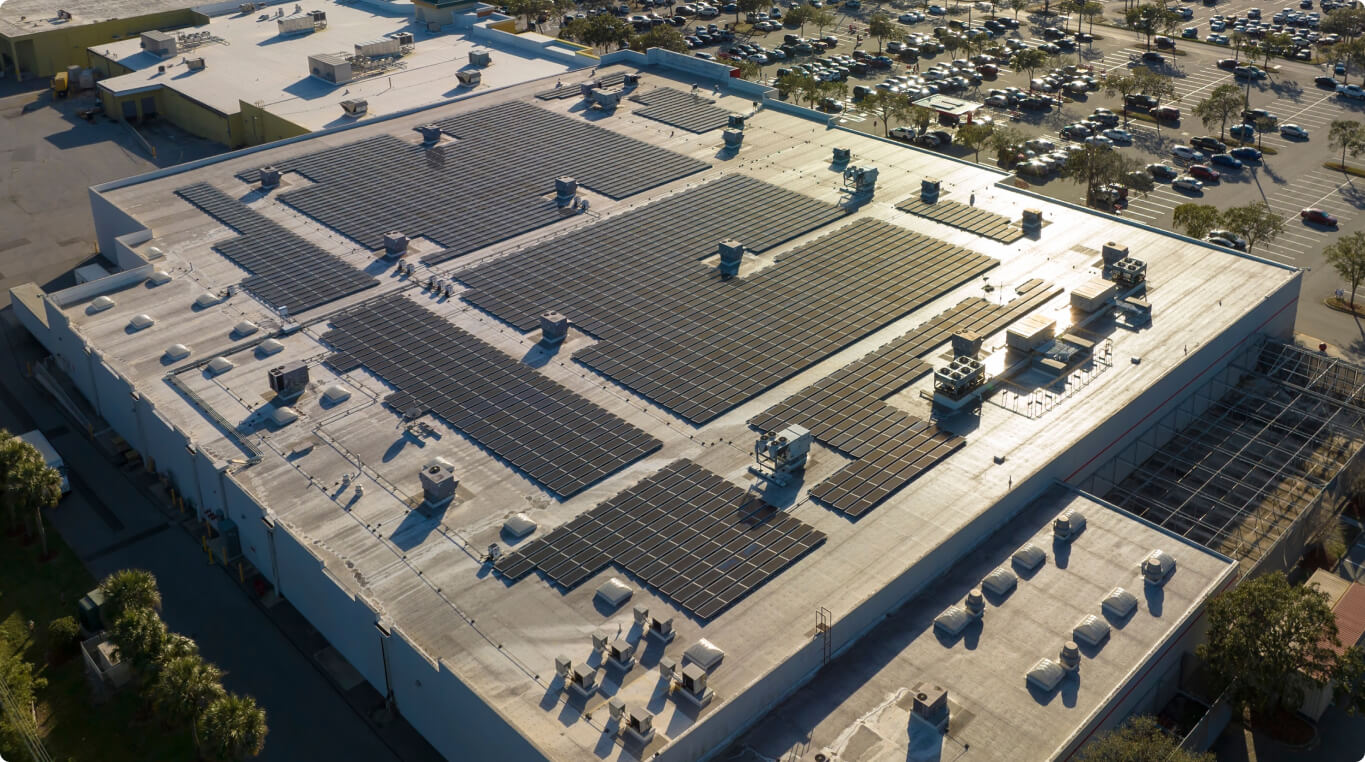
Blog


In recent years, the adoption of solar rooftop installations has surged globally, reflecting a significant shift towards renewable energy. For businesses, this transition can highlight a commitment to environmental sustainability, while offering numerous financial and operational benefits.
Financial Savings and Stability
One of the most compelling reasons for businesses to invest in solar rooftop installations is the potential for substantial cost savings. By generating their own electricity, companies can reduce their energy bills in the long run. The initial cost of installing rooftop solar for business can be significant, but the return on investment is typically realized within a few years due to the reduction in energy costs. Additionally, businesses can benefit from various government incentives, tax rebates, and subsidies designed to promote renewable energy adoption.
Energy Independence and Reliability
A solar rooftop installation for business enhances energy independence by reducing reliance on the traditional power grid. This is particularly advantageous in regions prone to power outages or where the grid supply is unreliable. By having a consistent and reliable source of energy, businesses can ensure uninterrupted operations, which is critical for profitability. Moreover, with advancements in battery storage technology, excess energy generated during the day can be stored and used during peak hours or at night, further enhancing energy reliability.
Environmental Impact and Corporate Responsibility
Installing rooftop solar for business significantly reduces a company’s carbon footprint. This not only helps in combating climate change but also enhances the company’s image as a socially responsible entity. Consumers and stakeholders increasingly prefer to engage with businesses that prioritize sustainability. For instance, tech giants like Google and Apple have invested heavily in solar rooftop installations to power their campuses and data centers, demonstrating their commitment to green energy.
Competitive Advantage and Brand Enhancement
Businesses that embrace solar energy can gain a competitive edge. By promoting their green credentials, they can attract environmentally conscious customers and partners. Additionally, solar installations can be a powerful marketing tool, showcasing the company’s dedication to sustainability. For example, Walmart has installed solar panels on numerous store rooftops worldwide, not only reducing their operational costs but also reinforcing their brand’s commitment to sustainability.
Global and Indian Perspectives
Around the world, numerous commercial entities are transitioning to solar energy. In the United States, Target has become a leader in solar rooftop installations, with over 500 of their locations equipped with solar panels. Similarly, in Australia, shopping centers like Stockland Green Hills are harnessing solar energy to power their operations, reflecting a global trend towards renewable energy adoption in the commercial sector.
In India, the solar energy revolution is gaining momentum among businesses. Companies such as Infosys and Tata Power are leading the charge by installing rooftop solar systems across their facilities. The Indian government’s ambitious target of achieving 500 GW of renewable energy capacity by 2030 has spurred numerous incentives and support mechanisms for businesses to go solar. As a result, Indian businesses are increasingly recognizing the economic and environmental benefits of solar rooftop installations.
Conclusion
Incorporating a solar rooftop installation for business is not just an eco-friendly decision but a strategic move that can drive financial savings, enhance energy reliability, and boost corporate image. As businesses around the globe, including those in India, continue to embrace solar energy, the transition towards a sustainable and economically viable future becomes more attainable. By installing rooftop solar, businesses can not only safeguard their operational success but also contribute positively to the global effort against climate change.